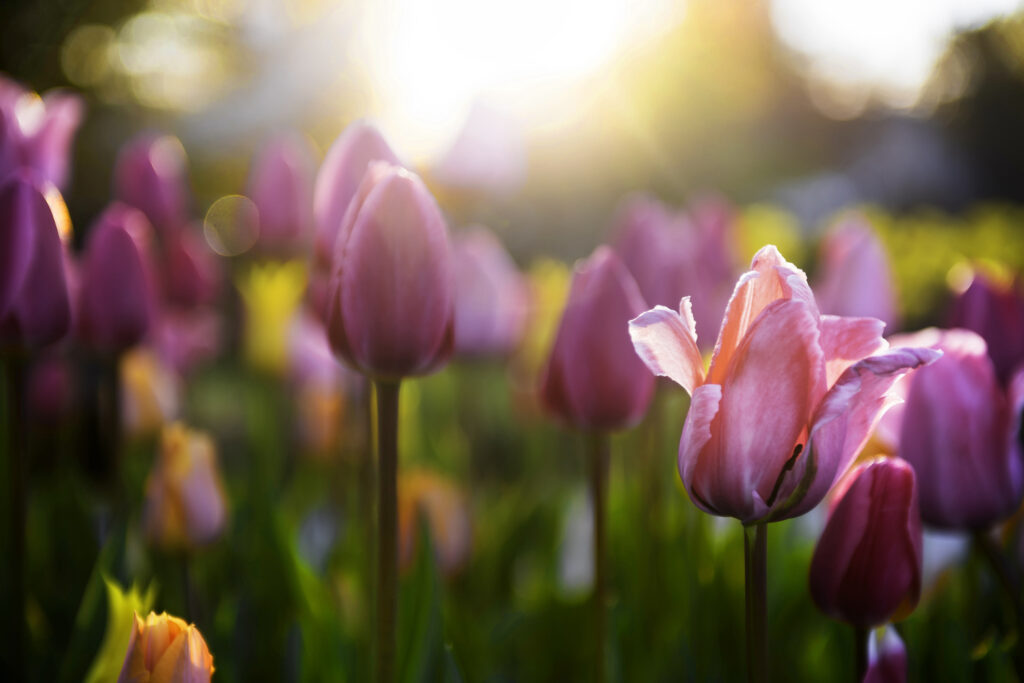Few things are as invigorating as opening windows in the early morning, bringing the outdoors inside. Sitting by the open window, watching drapes flutter while listening to the sound of the wind rustling through the trees is a testimony to the sacrament of movement that is part of life. Nature’s dance provides a multitude of sights and sounds that awaken and renew even the most sluggish hearts.
From the caw of the crow to the trill of the yellow breasted finch, our feathered friends offer a symphony of praise to the Creator that invites us to do the same. Doing only what comes naturally, they call us to join in singing the liturgy of nature because we, who have been created in God’s own image and likeness, are too often oblivious to the wonder of God’s ongoing presence and love for the world.
Among the many gifts from God that surround us, springtime events remind us that new life and renewal are ours for the asking. From the tiniest flower to the towering oak trees, outdoor cathedrals beckon us to enter a sacred space that awakens us, causing us to bow in awe at the wonder and majesty of God. In ways both great and small, we are surrounded by the footprint of God.
One such footprint has become an annual event that takes place in our backyard as year after year a family of blue birds occupies a birdhouse in our garden. Perched on top of a tree trunk, the dead wood serves as a natural pole to support the nest, reminding us that from death comes new life.
We have no way of knowing if it’s the same birds that return every year, but more important than their identity is their diligence. Every year they ferry twigs and grass, feathers and pieces of discarded twine to create a home that rivals the work of any skilled artisan. Yet, their relentless activity is only the beginning of an annual drama that plays out before our eyes.
As weeks go by, the male bluebird deposits food for the female while she warms the eggs that house their soon-to-be offspring. Hidden from view, we’re not privy to the birth, but if we listen carefully while standing near the birdhouse, the birth announcement arrives in the form of soft chirping.
For the next few weeks, the adult birds deliver food to satisfy seemingly unsatiable appetites. Sparing no effort to protect the life of their young family, adult birds alternate guard duty. From a nearby branch, they descend on any squirrel that might disrupt the young family.
The diligence and devotion of the new parents offer invaluable lessons in parenting, serving as an indictment to humans willing to sacrifice the young in the womb or abuse and neglect children.
Nature’s lessons instruct the young and the old, the wise and the unlearned alike. No one is excluded from God’s school of learning. Not only does it provide lessons in birthing and parenting, but it teaches us about the importance of detachment.
Within a month or so the birdhouse becomes vacant. Cleaning out the nest, we are astounded by the intricate workmanship that the builders left behind.
I am reminded of the words of a wise rabbi who advised his congregation to pack lightly when preparing for heaven. His sage advice: “Touch everything but take nothing” is counsel that our bluebird friends have reinforced through the years. They take only what is needed, that which will contribute to new life, and when nature has run its course, they leave without so much as a backward glance.
If only our world could take these lessons to heart. Rather than deplete the world’s resources, we would touch them lightly, treating them as communal property rather than personal possessions. We might begin by opening a window, planting a garden or simply by pausing to unite our song of praise with the sounds of nature.
Like blossoms that open to the sun, may our hearts embrace the many gifts that are to be touched but not taken, appreciated but not harmed, so that life will be renewed in abundance.

